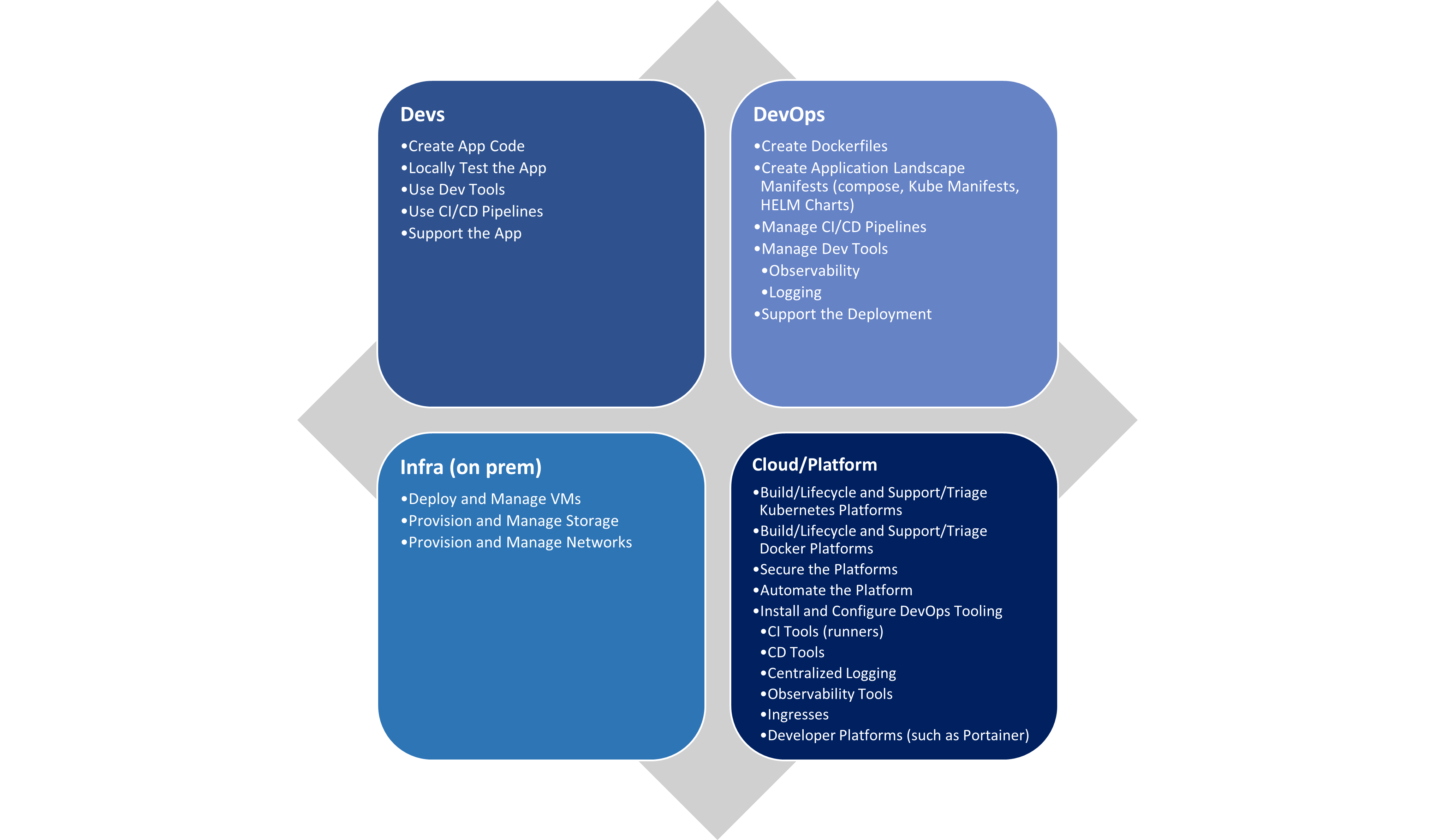
Neil Cresswell
Portainer CEO

For the last decade, DevOps has been the backbone of software delivery - bridging developers and operations to move code to production faster. But as businesses scale and architectures stretch across clouds, clusters, and edge locations, DevOps has hit a wall. The promise of speed and agility is being replaced by layers of complexity, tool sprawl, and rising operational overhead.
Enter Platform Engineering - the evolution of DevOps.
It’s the next phase of software operations: where automation, self-service, and container management platforms replace the scripts, pipelines, and manual integrations that once defined DevOps.
This isn’t the death of DevOps. It’s the moment it transforms into something sustainable — and scalable.
DevOps was born to break down silos between developers and IT operations. It worked - for a while. Teams automated builds, adopted CI/CD, and brought code to production faster than ever before.
But as containerization and Kubernetes became the norm, new challenges appeared:
The result? DevOps teams are spending more time managing infrastructure than improving applications.
Kubernetes was meant to simplify scaling - but in practice, it introduced a new layer of complexity.
Modern enterprises now need more than DevOps. They need platforms that abstract this complexity and enable repeatable, reliable operations across hybrid and edge environments.

Platform Engineering is the logical next step.
Instead of every DevOps team reinventing automation and deployment for each project, platform engineering builds a reusable foundation - a standardized environment where developers can deploy software safely and autonomously.
It’s about automation, not abstraction. Platform engineers define the golden paths, policies, and guardrails. Developers use those paths to build and ship faster - without worrying about YAML, manifests, or Kubernetes internals.
In short, platform engineering turns DevOps from a manual process into a managed service inside your business.
It delivers:
And it’s here that Portainer becomes a critical part of the stack - a container management platform that simplifies Kubernetes and Docker operations, so enterprises can scale without adding complexity.
Containers reshaped how modern software runs. They gave developers the power to package applications once and deploy them anywhere - on a laptop, in the cloud, or at the edge. That flexibility has unlocked massive gains in agility and speed.
But it also created a new kind of complexity. Each containerized environment behaves slightly differently. Kubernetes, the orchestration standard that emerged to manage this complexity, solved many problems - and introduced new ones.
Suddenly, teams needed specialists to write manifests, manage clusters, and maintain pipelines.
Instead of enabling innovation, operations started to dominate the developer experience.
Scaling infrastructure became a daily battle, and the “self-service” dream of DevOps gave way to layers of YAML, CLI tools, and security risks.
That’s why the conversation has shifted from “how do we deploy?” to “how do we manage this efficiently at scale?”
The next evolution isn’t more DevOps scripts or bigger Kubernetes clusters - it’s automated container operations.
This is where Platform Engineering and intelligent management platforms take over the heavy lifting.
Instead of manual configuration, organizations are now building self-service operational platforms that handle:
Portainer sits squarely in this space.
It’s a unified container management platform that turns Kubernetes and Docker complexity into a simple, governed experience.
Platform teams define the rules. Developers deploy within them - safely, quickly, and consistently.
This is how modern enterprises move beyond DevOps. Not by abandoning its principles, but by turning them into a repeatable, automated, and sustainable operating model that can scale across every environment.
DevOps transformed how teams built software.
Platform Engineering - and tools like Portainer - will transform how they run it.
The future of DevOps isn’t about more tools or more complexity.
It’s about creating operational simplicity at scale - so developers can focus on building, and businesses can focus on growing.
See how Portainer helps enterprises move beyond DevOps. Book a 15-minute demo and discover how automated container operations can simplify your platform strategy.